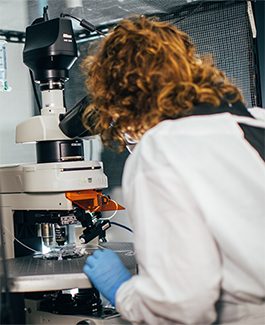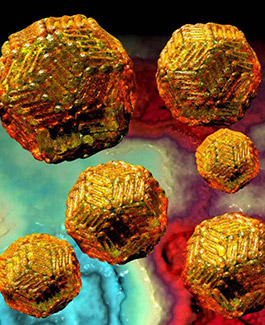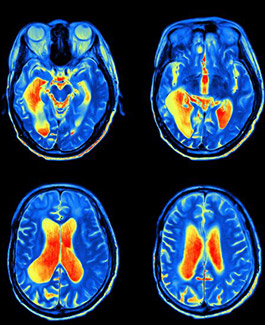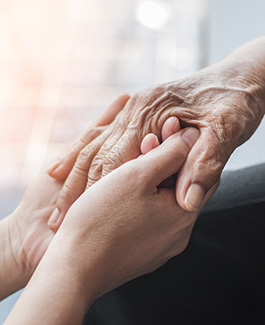Delivering cutting-edge research with impact
We are a world-class research facility focusing on the aetiology, pathomechanisms and potential treatments for ME/CFS and long COVID, GWI and illnesses.
Our research is focused towards using the unique pathomechanism markers we have identified to develop a screening/diagnostic test and pharmacotherapeutic interventions using clinical trials to improve the health and wellbeing of individuals.
Focus areas

Ion channel research

Immunology

Long Haul COVID

ME/CFS

Neuroimaging

Epidemiology and health economics

Disability and NDIS
Ion channel research
- The NCNED is the first to globally develop and implement a whole-cell, patch-clamp technique to characterise ion channel function in natural killer (NK) cells for research in ME/CFS, long COVID, and GWI.
- The characterisation of ion channel function, using this novel technique, identified the loss of TRPM3 ion channel function in these diseases.
- The utilisation of multidisciplinary techniques and novel technologies have consistently demonstrated impaired TRPM3 as a potential biomarker.
Experts: Professor Sonya Marshall-Gradisnik and Dr Natalie Eaton-Fitch
Researchers: Etianne Martini Sasso, Chandi Magawa
Immunology
NCNED is the first to identify longitudinal changes in immune cells and their functional changes with ion channels that mediate calcium entry into cells.
Experts: Professor Sonya Marshall-Gradisnik and Dr Natalie Eaton-Fitch
Researchers: Etianne Martini Sasso, Chandi Magawa
Long COVID
Our research focuses on long COVID (post COVID condition) as there is considerable overlap with ME/CFS. We are investigating the clinical presentation of this illness with the aim to better define the case definition of long COVID.
NCNED research also explored the role of ion channel function and calcium signaling in the pathomechanisms of this illness.
Experts: Professor Sonya Marshall-Gradisnik and Dr Natalie Eaton-Fitch
Researchers: Etianne Martini Sasso
NCNED
NCNED is investigating illness presentation and the quality of life of ME/CFS in the hope to provide greater insight into the prognosis of this illness.
Experts: Professor Sonya Marshall-Gradisnik, Dr Natalie Eaton-Fitch, Associate Professor Leighton Barnden, and Dr Kiran Thapaliya
Researchers: Etianne Martini Sasso, Chandi Magawa, Breanna Weigel
Neuroimaging
Our focus is to investigate differences in brain function in ME/CFS, long COVID and GWI using ultra-high field 7 Tesla MRI.
NCNED is the first to report:
- Impaired brain functional connectivity in ME/CFS and long COVID.
- Reduced white matter in the brainstem and a compensatory increase in white matter in the cortex – the action part of the brain.
- Brain structural changes in ME/CFS and long COVID participants.
Expert: Associate Professor Leighton Barnden and Dr Kiran Thapaliya
Epidemiology and health economics
In collaboration with the Centre for Applied Health Economics, NCNED has investigated and continues to investigate epidemiological and demographical data of ME/CFS and long COVID patients in Australia. NCNED is undertaking health economics investigation in collaboration with the Centre and patients from across Australia.
NCNED has also collaborated with the Deeble Institute for Health Policy Research to develop a long COVID Health Policy Issues Brief. This publication is the first of its kind in Australia to highlight the need for incorporating the lived illness experiences of people with long COVID into healthcare policy.
In an Australian-first study, NCNED has reported comparable symptom presentation and patient-reported health outcomes among people with ME/CFS and people with long COVID. This research found:
- Comparable presentation of key ME/CFS symptoms, including post-exertional malaise, among people with ME/CFS and people with long COVID.
- No difference in any health outcome measure among people with ME/CFS and people with long COVID.
- Significantly poorer scores across all health outcome measures among people with ME/CFS or long COVID when compared with healthy controls.
NCNED is continuing to investigate the impacts of ME/CFS and long COVID on people’s lives, as well as how these illnesses affect patients over time. Recruitment is ongoing for our Longitudinal Quality of Health Study, which captures symptoms, patient-reported health outcomes, and healthcare service use over time to highlight the prolonged burdens faced by people living with these illnesses in Australia.
Experts: Dr Natalie Eaton-Fitch
Researchers: Breanna Weigel
Disability and NDIS
NCNED is investigating illness presentation and the quality of life of ME/CFS and long COVID to provide greater insight into the prognosis of these illnesses.
Assessment of disability over time provides avenues for NCNED to explore the impact of permanency of ME/CFS and long COVID.
Expert: Professor Sonya Marshall-Gradisnik and Dr Natalie Eaton-Fitch
Researchers: Breanna Weigel
Our researchers
Meet our team of researchers, support staff and collaborators who are driving our research success at NCNED.
PhD Study
Study alongside experts in your field
PhD and research candidates play an important role in our research efforts at NCNED.
Griffith graduates can attain advantageous professional experience as they complete their research degree and support our aim to transform the overall health and wellbeing of our population.
Find all you need to know about research study at Griffith, from degrees to scholarships and how to apply.
HDR scholarships
PhD and research degree scholarships can cover tuition fees, overseas health cover, living allowances paid as stipends and relocation allowances.
Some scholarship opportunities will also be offered throughout the year for particular research areas.
Contact details
- Phone
- (07) 5678 9283
- ncned@griffith.edu.au
- Media enquiries
- media@griffith.edu.au
- Location and postal address
- Mailbox 68, NCNED National Centre for Neuroimmunology and Emerging Diseases
- G40 Griffith Health Centre, Level 8.86
- Griffith University, Parklands Drive
- Gold Coast QLD 4222